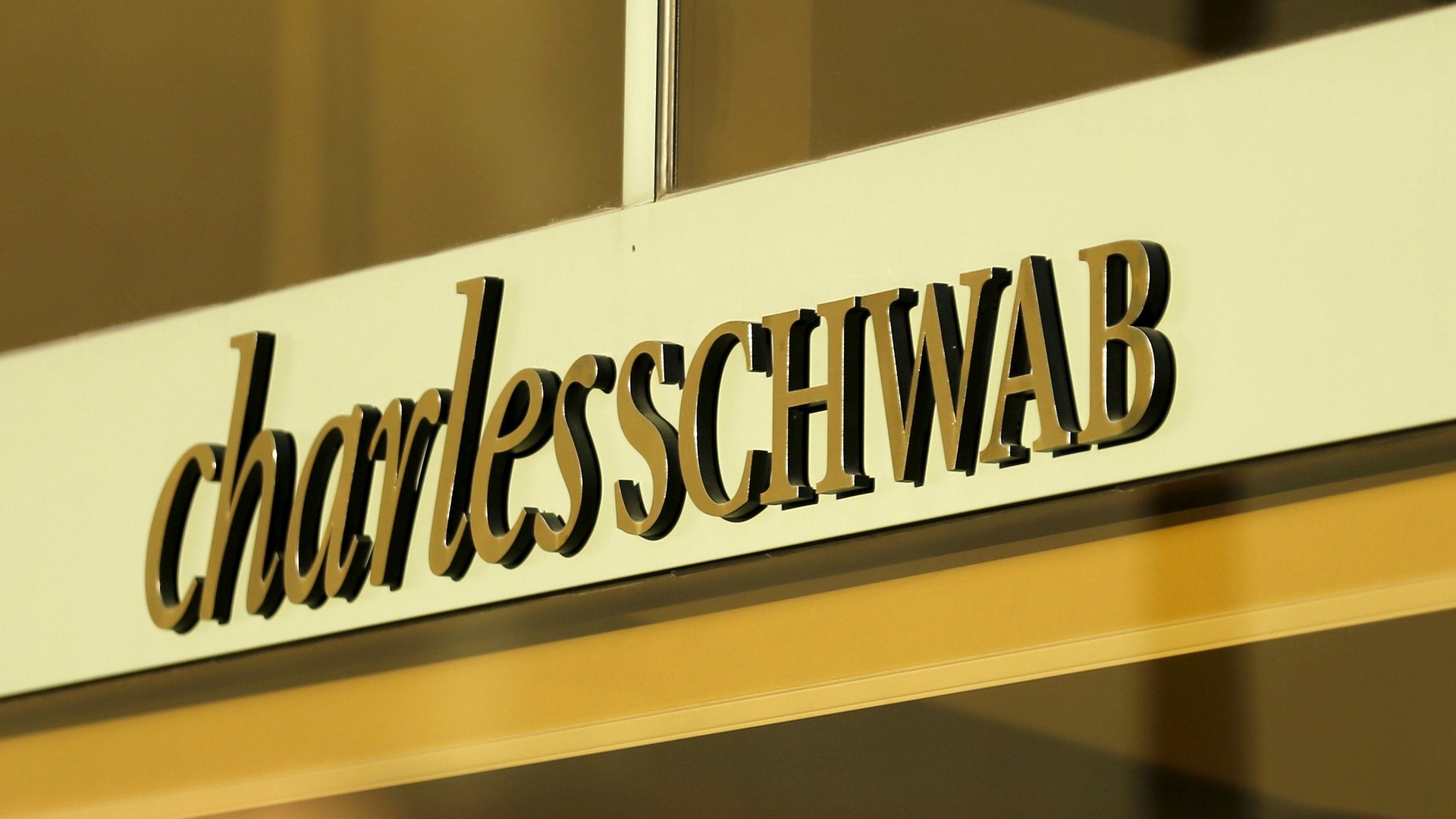Charles Schwab is cutting brokerage fees to zero, but that doesn’t mean it’s free
Charles Schwab is slashing the fees it charges on some stocks, funds, and options to zero—news that set off a minor earthquake among stock prices for online brokerage companies. But whether Schwab’s brokerage is actually free for its customers is less straight forward than it sounds.


Charles Schwab is slashing the fees it charges on some stocks, funds, and options to zero—news that set off a minor earthquake among stock prices for online brokerage companies. But whether Schwab’s brokerage is actually free for its customers is less straight forward than it sounds.
The San Francisco-based brokerage will stop charging online commissions for equities, exchange-traded funds (ETFs), and options listed on US and Canada exchanges as of Oct. 7, according to a statement today. (The charge for US stocks is currently $4.95.) The 48-year-old brokerage will still levy a commission for things like trading foreign stocks, large blocks that need more service, and fixed-income assets, as well as a 65-cent charge per options contract.
Stock prices for other stock brokerages plunged after the announcement, signaling investors think brokers will be forced to match Schwab and will have a harder time making money. TD Ameritrade fell more than 20%, while E-Trade and Interactive Brokers also declined. Schwab CFO Peter Crawford said in a separate statement that the commissions cut will cost the company as much as $100 million in quarterly revenue, which is the equivalent to about 4% of total net revenue.
Online stock trading has become much more competitive since digital startups like Robinhood began offering cut-rate brokerage for customers. Instead of commissions, Robinhood makes money from things like interest on customer deposits, charging traders who buy stocks with borrowed money (margin trading), and selling clients’ stock orders to the market makers who handle the trades (payment for order flow).
Brokers like Schwab and other companies also make money from payment for order flow. The way it works is that professional trading firms buy the retail-investor orders from the broker and execute the trades for them. These trading outfits typically make money from the gap between the bid and the offer. When the trading company buys order flow, they give some of that money (the rebate) to the brokerage that provided the orders.
As Justin Schack, managing director at Rosenblatt Securities, told Quartz in March, brokers have the choice to keep that money or offer better asset prices for their clients. “It’s obvious what’s in the customer’s best interest,” he said.
In the case of Schwab, the brokerage reported $139 million in order-flow revenue in 2018, and $114 million the year before.
Schwab isn’t changing the way it makes money from selling order flow, even though it’s getting rid of some commissions. “We are committed to providing clients with high-quality trade executions, and have a strong track record of meeting that goal,” a spokesperson said in an email. “Execution quality always takes priority when determining where we route customer orders.”
Payment for order flow certainly doesn’t mean retail traders are getting a bad deal. Market makers, sometimes called high-frequency traders, can potentially save money for everyone by executing orders “off-exchange.” This allows them to avoid the fees that come with trading on New York Stock Exchange or Nasdaq by, for example, filling a retail stock order directly with their own money. In the US, market makers are required to provide the best bid or offer that’s publicly available, regardless of how a trade is filled.
A market maker that buys retail flow takes on less risk and should be able offer better prices as a result. By going off exchange, market makers can also avoid having to compete with other sophisticated traders.
But some, like former SEC chairwoman Mary Jo White in a 2014 speech, think paying for order flow could create conflicts of interest. A broker may be tempted to send trades to the market maker that offers it the best rebates, instead of the best stock trade execution for the customer, the thinking goes.
It can also make it harder for the average investor to understand how much it really costs to execute the order, since the expense is buried somewhere in the spread between the bid and the offer, and the amount of rebate that wasn’t passed along. A brokerage that offers “zero” commissions sounds good, but a flat fee would be easier to understand, and would make it easier to shop around for the best bargain.